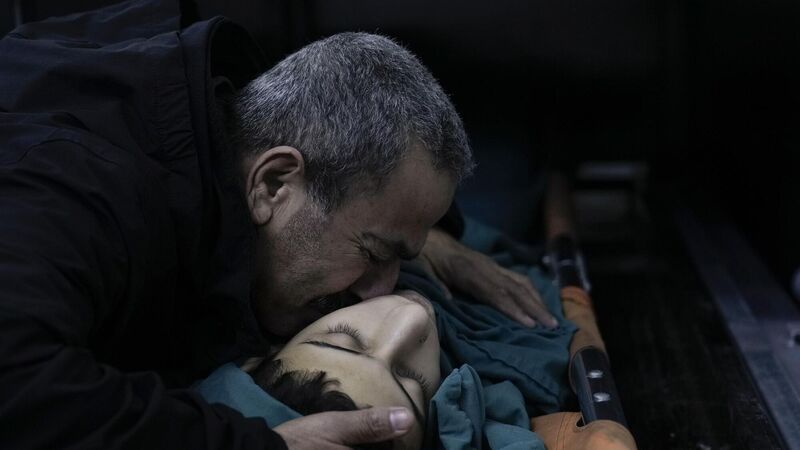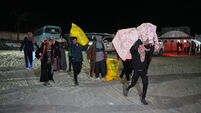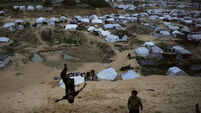Western reporting fails to include right to resist Israeli occupation

A relative mourns 15-year-old Basil Abu Al-Wafa, who was killed during an Israeli military raid on Jenin refugee camp in the West Bank in November last year. Picture: Majdi Mohammed/AP
On November 29 last year, the Israeli military executed what they described as "two high-ranking terrorists" during an assault in Jenin in the occupied West Bank.
While they never identified the terrorists, CCTV footage later revealed live images of a small boy turning and starting to run before falling sharply to the ground — his body dragged from the road by a friend.

















